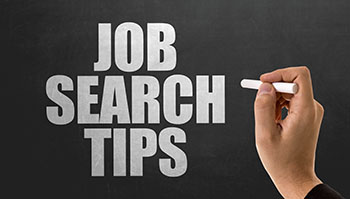
Whether you’re a new grad looking for your first job, a mid- or high level professional looking to make a career change, looking for a new job can be fraught with stress. Let us help you ease some of that stress away, with handy tips on finding the right job:
Assess your skills. Don’t be limited by your education and your professional experience. Consider your talents and things you like to do in your free time. What things do you excel at? What do you enjoy doing? What are you passionate about?
Spread the word that you’re on the market for a new job. Tell family, friends, former colleagues, people at the gym that you’re looking for a new job. Chances are, they or someone they know can help you find work. Networking is one of the top ways people find new jobs.
Get in touch with professional organizations in your industry. They might be privy to employment opportunities you are unaware of. While you’re at it, you should also join professional organizations to take advantage of all the benefits of membership.
Look at websites of companies you’re thinking of joining. Sign up with a job search database like My Job Connections to get personalized job recommendations.
Narrow the field and identify jobs you want. Aim for something, don’t take a scattershot approach and accept just any offer that comes your way. Instead of applying for dozens of jobs, refine your search and carefully look over each job ad to see if it’s what you want before applying or sending your resume.
Have a solid resume. Make one for every position you apply for. Highlight your achievements, fill in gaps, keep it short. Do not lie. And please check for errors.
Clean up your online profiles. Yes, recruiters look at your Facebook page. You might think that you’re just expressing your individuality online, but crazy photos of your last vacation will do more harm than good. Make sure that everything posted looks professional and reflects the image you want to project.
Keep your language professional. When communicating with recruiters and potential employers, whether by phone, e-mail or in person, it is best to speak in clear, concise language that is pleasant and unambiguous.
Manners matter. As in the tip above, you should always be polite and gracious with everyone you talk to. Even if you get turned down for a job, thank the interviewer for his time and send a thank you note after.
